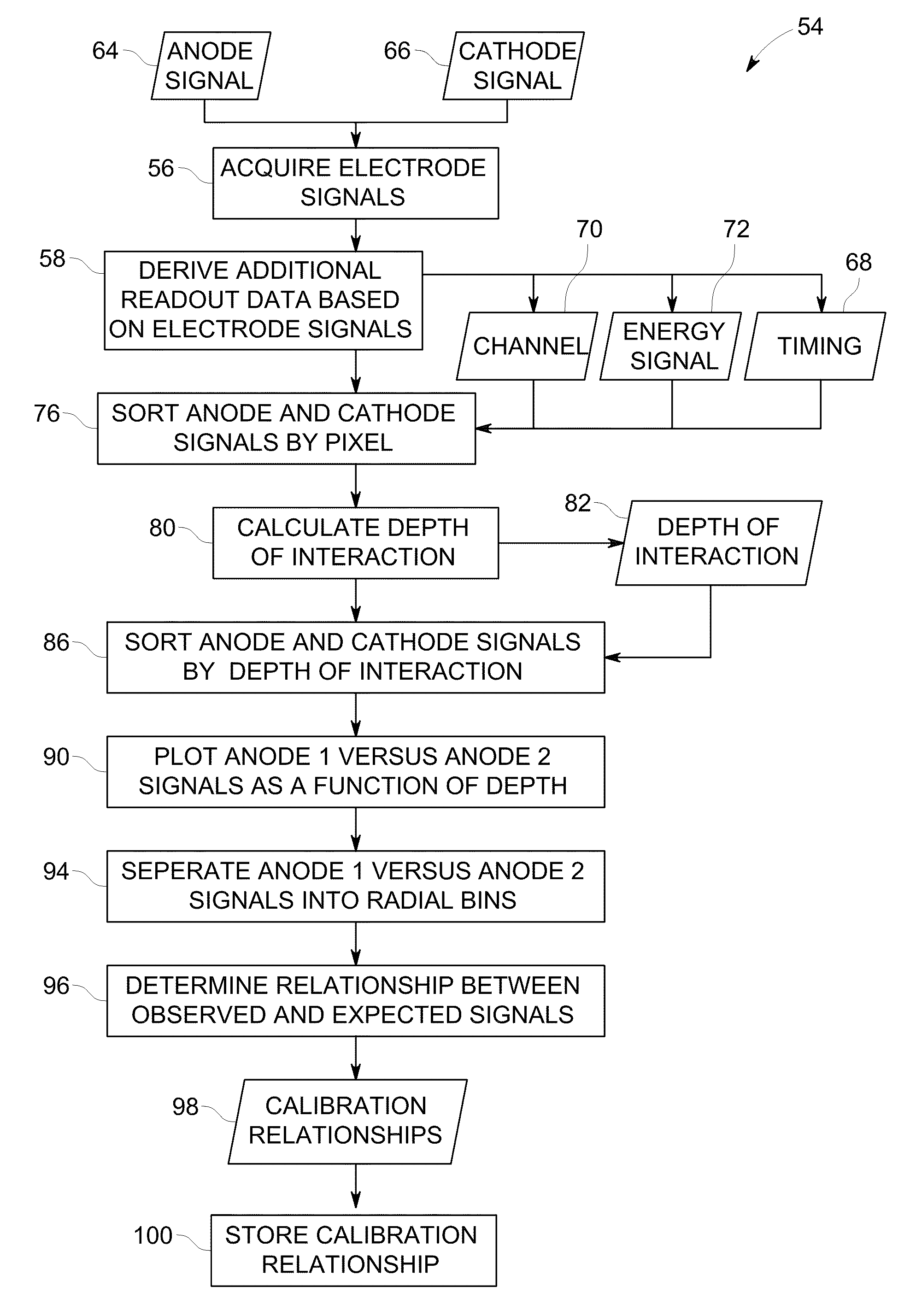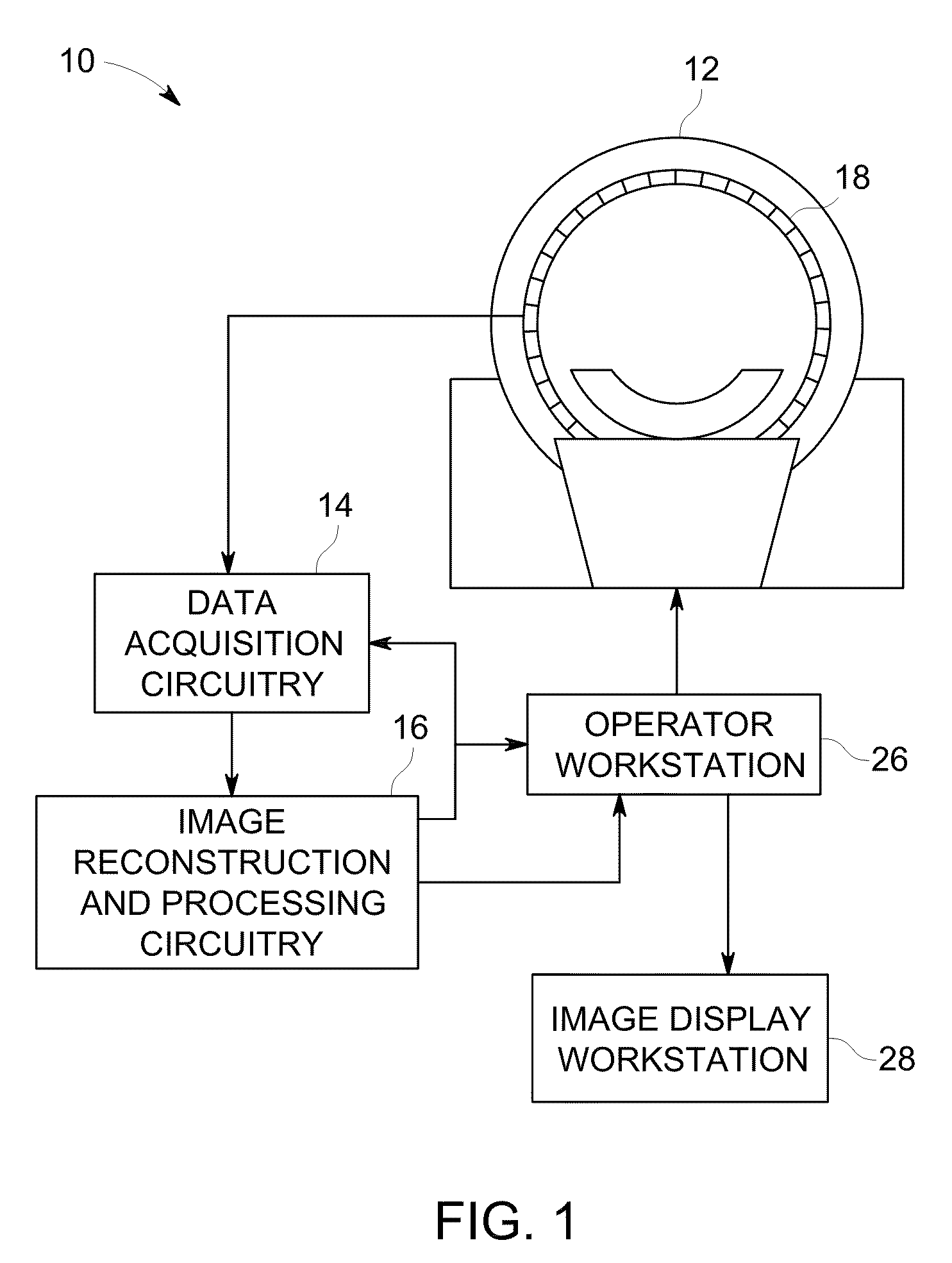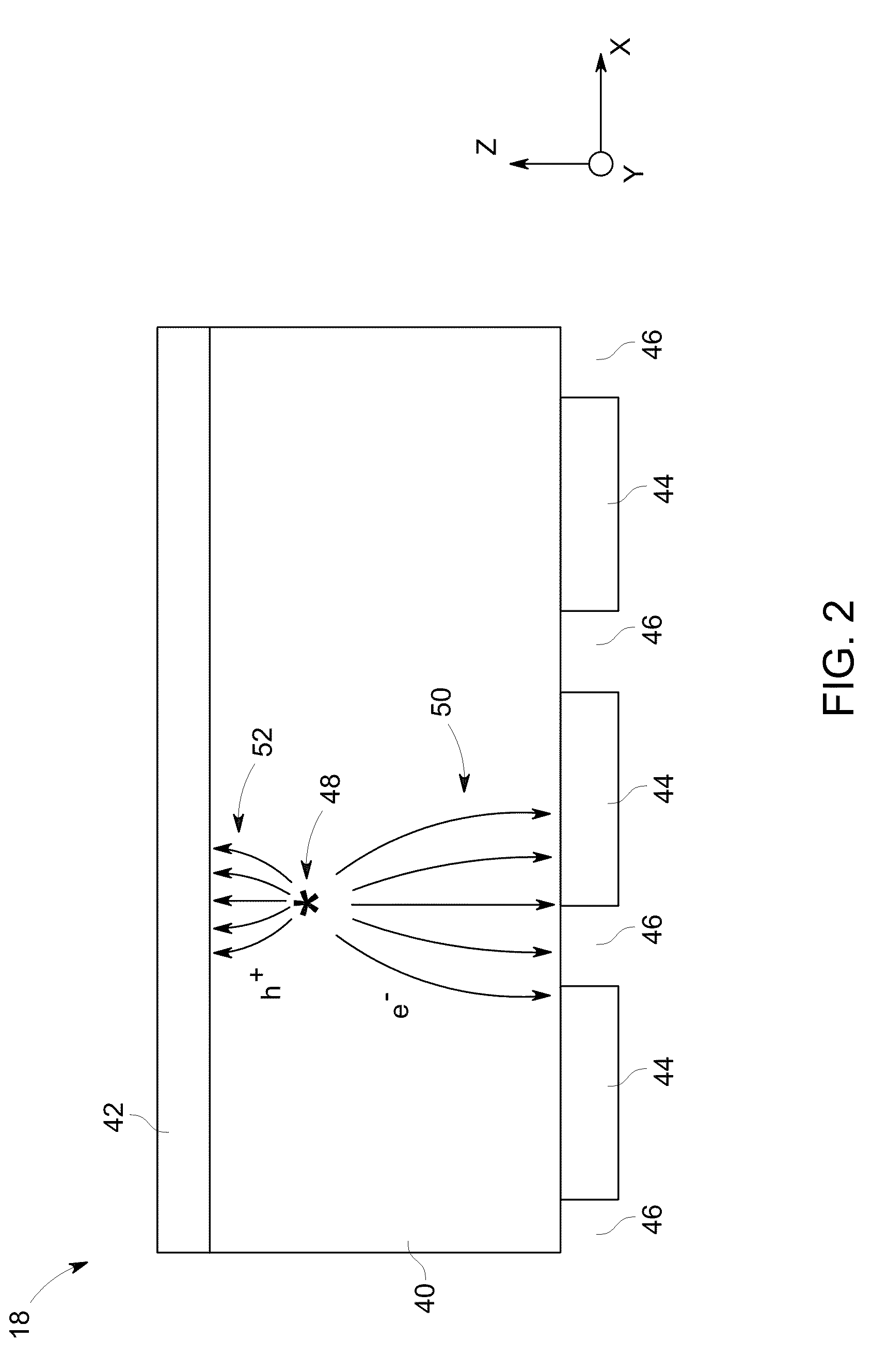Charge loss correction
a charge information and correction technology, applied in the field of radiation detection techniques and systems, can solve the problems of charge information loss, go undetected, or otherwise undergo loss of some charge information
- Summary
- Abstract
- Description
- Claims
- Application Information
AI Technical Summary
Benefits of technology
Problems solved by technology
Method used
Image
Examples
Embodiment Construction
[0032]In accordance with the present disclosure, signal data is acquired using an imaging or isotope detection modality, such as a single photon emission computed tomography (SPECT) or positron emission tomography (PET) imaging system, or another suitable imaging modality. In one embodiment, a radiation detector, such as a cadmium zinc telluride (CZT) detector, converts incident radiation to electrical signals, which may be used to generate images. In such an embodiment, when a gamma ray interacts with the CZT material, electron-hole pairs are generated which move toward the electrodes associated with the CZT material. In one implementation, the anode structure may be formed as grid of separated anode electrodes (i.e., pixels) on which the moving electrons and holes induce charge. In normal operation, the induced charge on the anode electrodes is proportional to the incident gamma energy. Therefore, by measuring the induced charge, the incident gamma energy can be indirectly measure...
PUM
 Login to View More
Login to View More Abstract
Description
Claims
Application Information
 Login to View More
Login to View More - R&D
- Intellectual Property
- Life Sciences
- Materials
- Tech Scout
- Unparalleled Data Quality
- Higher Quality Content
- 60% Fewer Hallucinations
Browse by: Latest US Patents, China's latest patents, Technical Efficacy Thesaurus, Application Domain, Technology Topic, Popular Technical Reports.
© 2025 PatSnap. All rights reserved.Legal|Privacy policy|Modern Slavery Act Transparency Statement|Sitemap|About US| Contact US: help@patsnap.com



